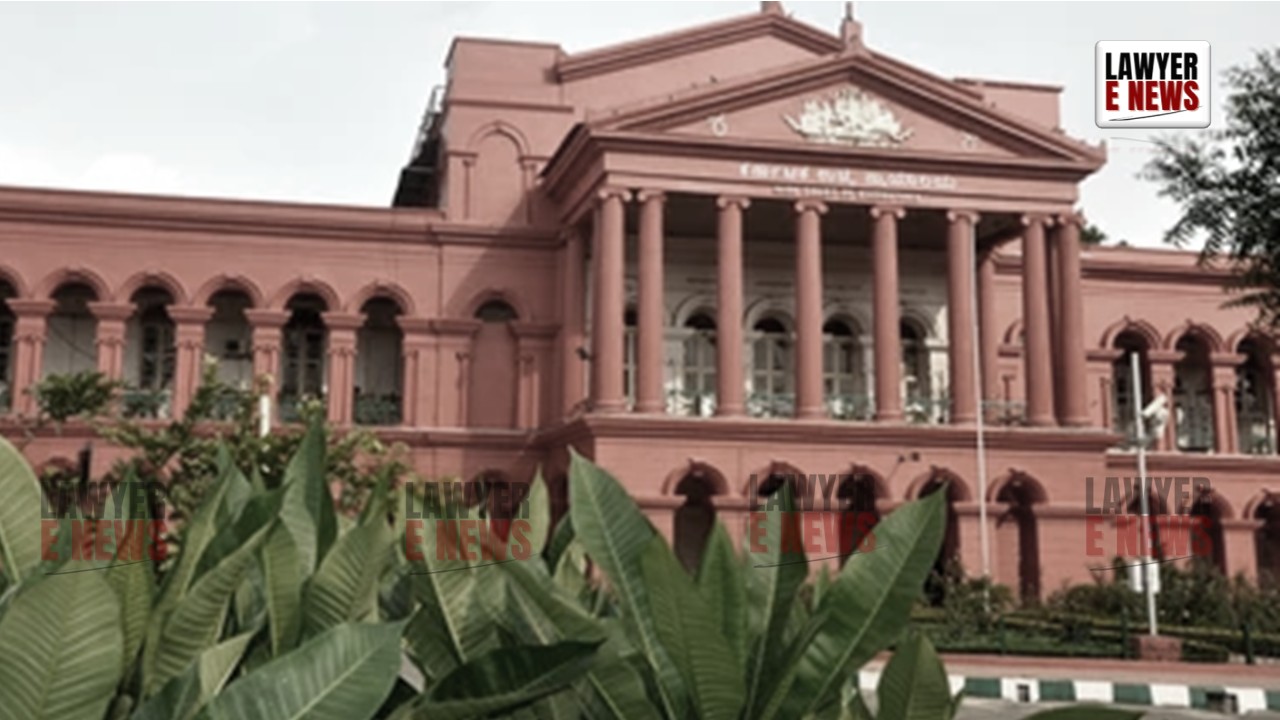-
by Admin
18 February 2026 2:25 PM



"No Forgery, No Impersonation, No Mens Rea — Dispute Over Domain Name Doesn’t Make It a Crime - Karnataka High Court holding that allegations involving the use of a university’s domain name by its former Chancellor do not constitute offences under the Information Technology Act or Indian Penal Code, and that the proceedings were a “classic case of civil dispute being weaponized as a criminal case.”
Justice M. Nagaprasanna, in a scathing critique of the misuse of criminal law, stated emphatically, “None of the ingredients necessary to make out the offences under Section 66, 66D of the IT Act or Sections 465, 468 of IPC are even remotely found.”
"Dispute Over Domain Use is Civil, Not Criminal — FIR is Misuse of Criminal Process"
The petitioner, Dr. Madhukar G. Angur, approached the Court under Section 482 of the CrPC seeking to quash proceedings initiated in Crime No. 60/2016, which later became C.C. No. 3218/2021, on allegations that he fraudulently created the email ID allianceblr21@gmail.com, posed as the Chancellor of Alliance University after his termination, and tried to alter administrative credentials of the university’s domain, www.alliance.edu.in.
The complaint alleged that by impersonating himself as Chancellor and using a forged university letterhead, Dr. Angur attempted to mislead the domain registrar, ERNET India, to gain control over the university’s online operations. Further, it was claimed that he launched a parallel website, diverted online student fee payments through an unauthorized payment gateway, and collected over ₹62 lakh through such means.
However, the High Court noted that the core of the allegations stemmed from Dr. Angur’s assertion that he remained Chancellor by operation of Section 15(2) of the Alliance University Act, and that the domain was created and renewed by him even prior to the institutional conflict.
Justice Nagaprasanna observed, “A seemingly civil dispute of usage of domain name is projected to become a crime. It was always open to the complainant to seek injunction through a civil court rather than set criminal law in motion.”
"Impersonation Under IT Act Requires Dishonest Intention — Where Is It Here?"
Addressing the application of Section 66D of the IT Act (cheating by personation using computer resource), the Court found the allegations hollow and lacking the essential mens rea.
“The petitioner has consistently claimed to be the Chancellor under the university statute. Even if this claim is disputed, it doesn’t transform into impersonation or cheating,” the Court said.
Similarly, on the charge of forgery for the purpose of cheating under Section 468 IPC, the Court ruled that there was no fabrication or dishonest intent that could attract criminal prosecution.
The Court stressed that criminal proceedings must not be used for collateral objectives. “Judicial process must not become an instrument of oppression,” it warned, quoting extensively from Supreme Court judgments in Mahmood Ali v. State of U.P. and Deepak Gaba v. State of U.P., both of which cautioned against the abuse of criminal law for settling civil scores.
"Criminal Proceedings Were an Abuse of Process — Quashed in the Interest of Justice"
Invoking its powers under Section 482 CrPC, the High Court quashed the entire proceedings. The judgment underlined that courts have a duty to closely scrutinize cases where criminal allegations are clearly being used as a pressure tactic in private disputes.
Referring to State of Haryana v. Bhajan Lal, the Court held that the present case falls squarely within the categories where FIRs should be quashed — particularly where the allegations, even if accepted at face value, do not constitute any offence.
The Court declared, “Wherefrom dishonest intention has sprung in the case at hand is ununderstandable.”
Concluding the judgment, Justice Nagaprasanna noted that “there is not even a semblance of criminality in the complaint. The charge sheet merely recounts a series of actions that ought to have been contested in a civil court — not in a criminal courtroom.”
Date of Decision: 22 April 2025
